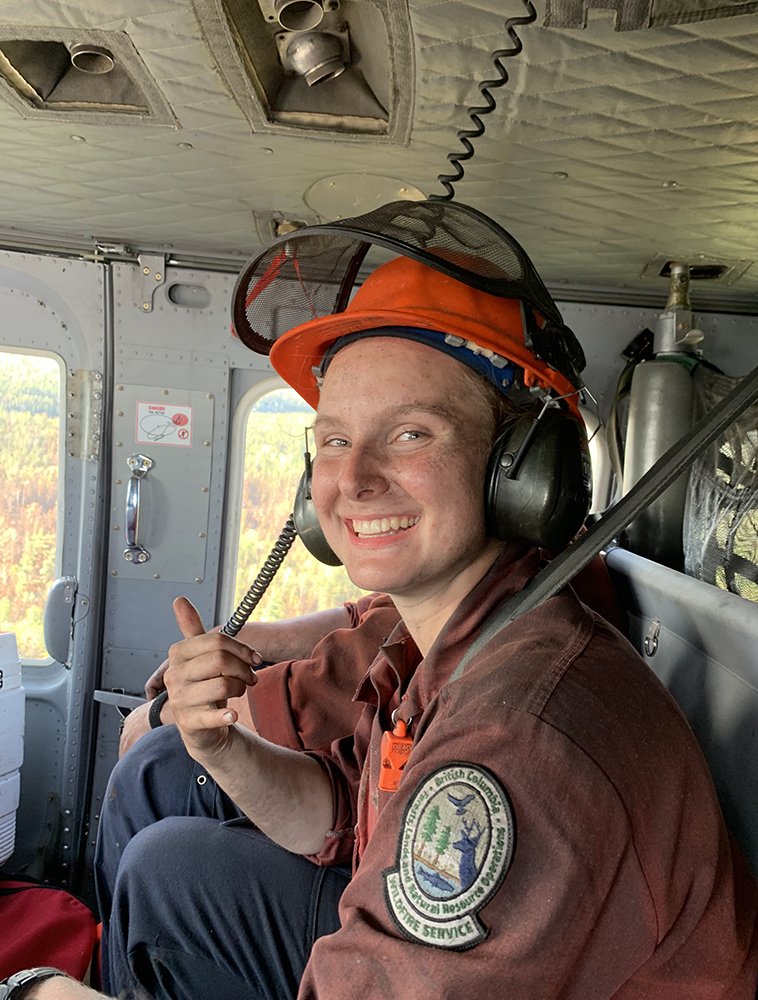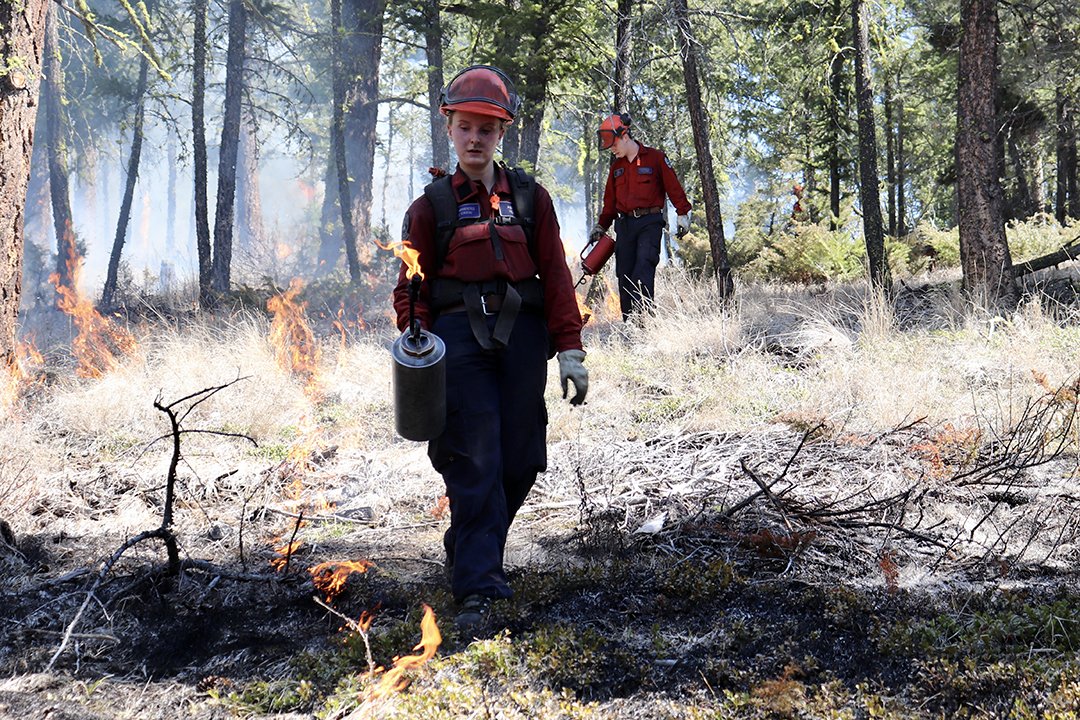On the fireline with VIU forestry student Ashley Holyk
VIU forestry student Ashley Holyk has fought wildfires in BC since she was 19 and is now an initial attack crew leader based out of Williams Lake, flying into the region’s hot spots during the worst wildfire season on record.
With 1,600 wildfires recorded this year and over one and a half million hectares burned, 2023 is the worst wildfire season on record in BC. There are currently 351 active fires in the province with 178 out of control.
This season has also seen the deaths of two wildland firefighters, Zachery Freeman Muise, 25, and Devyn Gale,19.
Cliff Chapman, director of wildfire operations at the BC Wildfire Service, spoke about the impact the deaths are having on frontline firefighters.
“I have never felt the heaviness that we are feeling this season with the tragic loss of two individuals in B.C. on fires,” he said. “The truth is it's heavy and our people are continuing to show up every day to support the firefighting effort on the ground.”
One woman on the fireline is Ashley Holyk, a forestry resources technology student at Vancouver Island University in Nanaimo.
“I think it's the perfect program to help you integrate [that knowledge],” she said. “I definitely think it would have been helpful if I would have taken it before I started in my first season in wildfire because you actually do a wildfire course in the program.”
The wildfire course at VIU also gives students an S100 wildfire qualification that teaches them basic fire suppression skills.
Ashley Holyk gives a thumbs up as she flys in a helicopter in her job as an initial attack crew leader with the BC Wildfire Service. Photo courtesy of Ashley Holyk.
“I definitely feel a lot more confident when I'm out in the forest, and I kind of have a better grasp of what kind of trees there are, and how those trees will interact with fire,” said Holyk.
According to Holyk, a number of her classmates are fighting wildfires this season throughout the province and they keep in touch with each other and share notes through a group chat.
“We actually were able to get quite a few people fighting fire from the program, which is really great,” she said. “Everyone is enjoying it and having a blast.”
Holyk joined the BC Wildfire Service in 2020 when she was 19 years old.
“I was encouraged by one of my best friends,” she said. “She was on the unit crew before me a year before me and she really enjoyed her time. She told me: ‘Hey, I know you're not really doing anything next summer. You should try this out, it's super fun, I think you'll like it a lot.’
“So I said, why not? And I've been here ever since.”
Holyk is now a veteran of some of the worst wildfire seasons in history and leads an initial attack crew out of Williams Lake.
Her team are the first on the ground when a fire is spotted, and she has to make the tough call if they can start to fight it.
Holyk with her BC Wildfire Service crew overlook a dry valley in the Caribou Fire Centre region. Photo courtesy of Ashley Holyk.
“The worst days that a wildfire fighter has is when you get to a fire and it's already too big and you can't control it,” she said. “That sucks, but let's figure out a plan so that we can get more resources and we can get this.”
One of Holyk’s most intense experiences with the wildfire service was a fire outside her hometown of 100 Mile House in 2021. As she was fighting the fire, her house was ordered to evacuate.
“It wasn't so much that the fire itself was intense, which at some points it definitely was, but it was knowing that I was fighting a fire that was affecting my community,” said Holyk. “That's a pretty intense feeling.”
Holyk’s family naturally worries about her safety but she’s quick to explain to them that “it's not in the movies. Is not always intense fire everywhere. That's not what firefighting really is.”
To help her family understand the reality of the job, she shares pictures of herself working on normal days with them.
One reality that Holyk thinks about is climate change and how it is turning the province she loves into a tinderbox and the increasing intensity of wildfires.
“Especially this year with the drought conditions that the province is facing,” she said. “It's something that I think about quite often.”
Since April, there have been 1,134 fires caused by lightning, 385 caused by people and 83 fires where the cause is unknown in British Columbia.
With numbers like that,Holyk would like people to listen to the BC Wildfire Service, observe bans on campfires and make sure that fires are out when they are allowed.
“We already have quite a few lightning-caused fires happening in the province and dealing with human-caused fires just adds to our workload,” she said.
Holyk fighting fire with fire as her crew works to control flammable underbrush in the field. Photo courtesy of Ashley Holyk.
Funding Note: This story was produced with funding support from the Local Journalism Initiative, administered by the Community Radio Fund of Canada.




